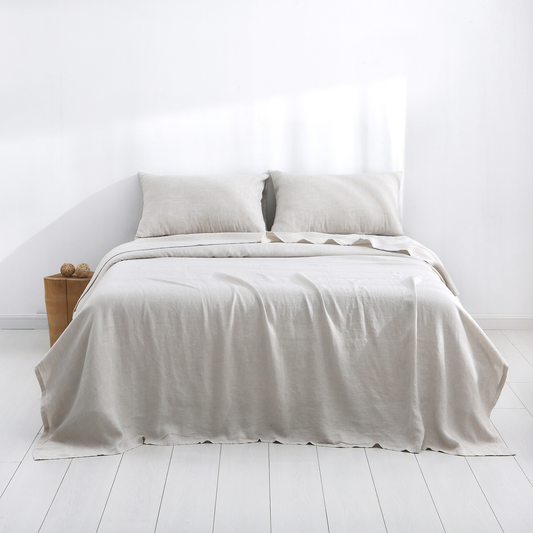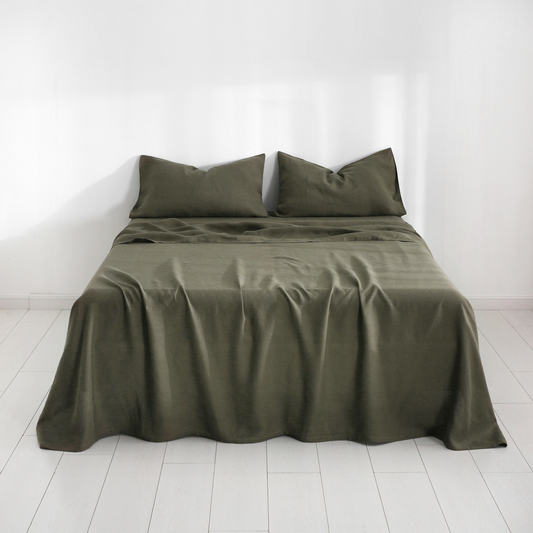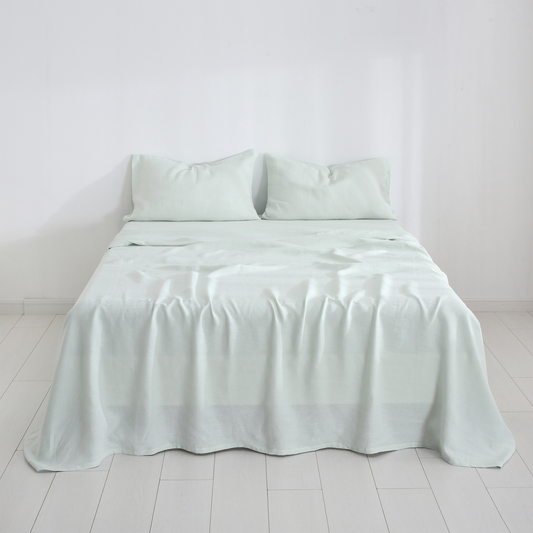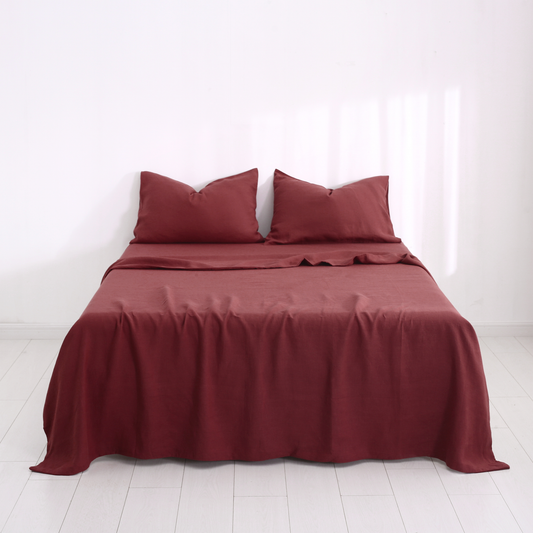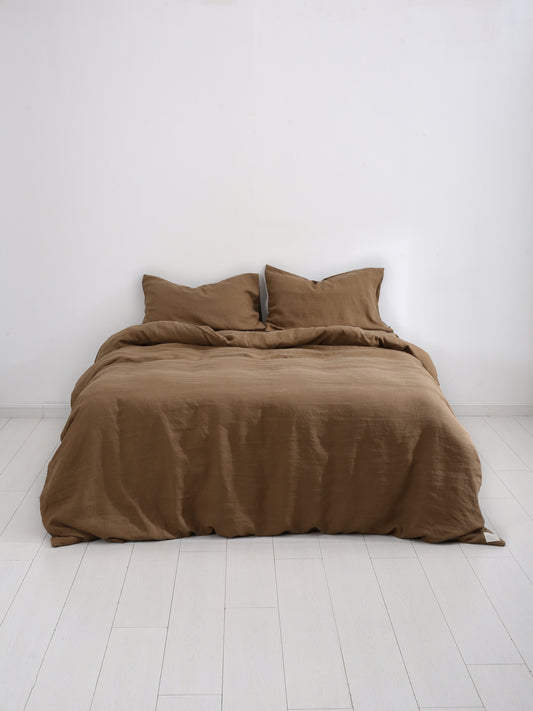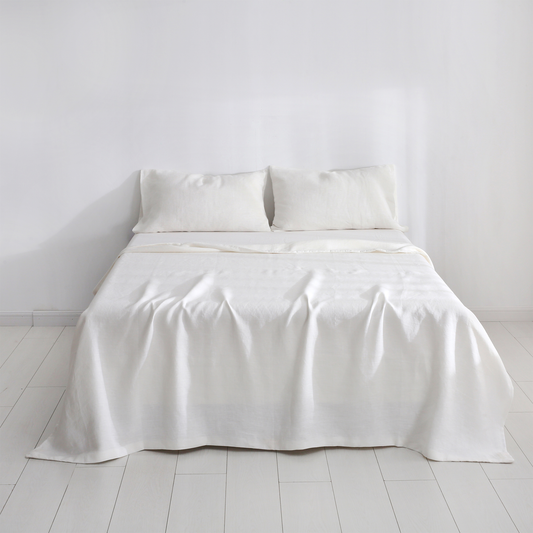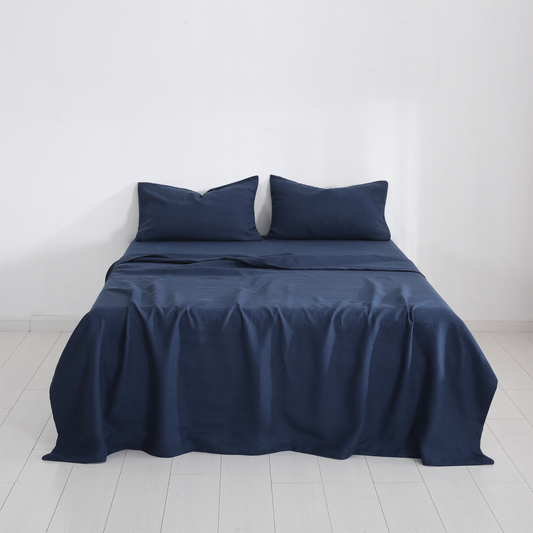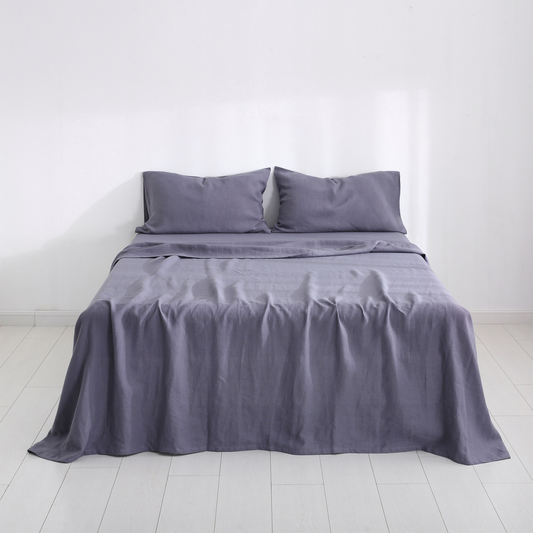Hemp bedding seems to be one of the key words on everyone’s lips at the moment, but why?
Why use hemp bedding?
What does hemp give you that other fabrics can’t?

Why are hemp sheets considered breathable and cool for sleep?
Moisture-wicking
Well, for one, hemp as a fabric possesses numerous properties that make it the ideal material to make bed sheets, or anything else from. For example, hemp fibres are naturally moisture-wicking.
So if you’re a sweaty sleeper, and you hate waking up with sheets all stuck to you, then hemp could be a fantastic solution. Individual hemp fibres have large surface areas, and possess a porous structure that naturally has many dips and crevasses, resulting in strong absorption, hence its ability to wick sweat. This complements the hollow structure of the hemp fibre, resulting in high levels of air circulation and breathability. Ultimately, the hemp sheets give you a cool, breathable, largely sweat-free sleep

How does hemp help keep your bed cleaner?
Hemp is highly hygienic, in fact, it’s antibacterial and antifungal by nature. A number of the organic compounds found in hemp, such as cannabinoids, alkaloids and the bast fibers - which are taken from the plant’s stem to create the material, are highly antimicrobial, and can thus help limit infections and stop unhygienic sleeping habits from going too far.
These compounds effectively help protect the sleeper against staphylococcus aureus bacteria, which cause a large number of skin issues such as boils, blisters and rashes, and also from E. coli bacteria. Yet another reason to choose hemp.
Why is using hemp better for the environment compared to other fabrics?
Textile production is estimated to contribute to 20% of global clean water pollution. As such, it is one of the biggest threats to the future of human and animal life on the planet. Without water, no living thing can survive. This is perhaps the most important reason of all.
And what’s the other thing that we need to survive? Air? Well, yes, obviously. Yearly, over 200 million trees are cut down for textile production (to make fabrics like viscose and rayon), that’s a lot of carbon being released into the atmosphere.
Did you think flying was bad? Well, international fabric production and factories release more fossil fuels than international flights and maritime shipping combined.
On top of that, such fabrics constantly produce methane as they waste away in landfill, and for polyester that’s no short time spent wasting away. It’s up to 200 years.
And don’t even get us started on the irrigation needed for cotton farms out there.
To make one cotton T-shirt, about 2,700 litres of water are used, predominantly for irritation. That’s drinking water for one human for 2.5 years. Only, it’s not, because it’s already been gluttonously pumped into some cotton farm overseas that you’ve probably never heard of. So that’s the real cost of that shirt on your back. But how do you pay it back? Well, hemp is a good start.
How does hemp help reduce carbon in the atmosphere?

Hemp is much more water-efficient due to its high-quality deep roots, and other factors. Most often, it doesn’t require much more irrigation than rainwater, roughly needing 500 litres per T-shirt (more than 5 times less water than cotton).
"The future will either be green or not at all."
— Bob Brown, Australian environmentalist and former politician
Further, in the production of hemp, you’re not releasing CO2.
In fact, hemp sequesters carbon more efficiently than almost any other crop. It’s twice as effective as trees, a carbon negative option. This is because it grows really fast, photosynthesises really fast and has deep reaching root systems.
Therefore, carbon is effectively and quickly captured and stored in the plant, and oxygen is released, helping humans breathe rather than stealing the air. And once hemp is farmed, the new crop can be re-planted on the same farmland provided it is well-cared for, because hemp roots prevent erosion, bind the soil together and help to rid the soil of heavy metals and other toxic substances in preparation for the next farming season.
So deforestation is limited as well, in ideal hemp farms. Last of all, hemp decomposes in 2 weeks, so if it is wasted (and we hope it is not), it releases significantly less methane than polyester, or even cotton (which can take about 4 months). So, basically, hemp is better in every respect than conventional fabrics, and is perhaps the single most important key to sustainability and harmony with the planet in the future of the textile industry.
How does hemp fabric become even softer with each wash?

The last reason why hemp is a great choice, is because it’s actually really comfy, and also it looks awesome!
On an ethical level, the above reasons are amazing, but personally, you are probably also concerned with the ‘vibe’ of hemp and how it feels on your body.
Well, it’s not lame. In fact, hemp is now considered one of the sexiest fabrics in Australia - and Australia is a pretty hip place.
"Comfort and simplicity are two keys to a happier life."
— David Thoreau, American naturalist and philosopher
And for your bed sheets, hemp is remarkably smooth and soft, not at all itchy, scratchy or sweaty. It’s actually proven that hemp softens with every wash, but this is not the fibres breaking down, rather it is the fibres loosening, hydrating themselves and losing any coarseness. Due to the cellulose and lignin content in hemp (two polymers and substances that help reduce decay and contribute to strong, robust fibrous structures of materials) and the long, strong fibres of the fabric, it doesn’t break and will last for years, and years, and years, getting softer and more comfortable all the while. Wish you could say that about your cotton sheets!
Why is hemp considered the future of textiles?
So, there you have it. That is why we honestly think that hemp is the future for textiles. It has to be, because otherwise there may not be a future at all! To summarise, hemp is naturally moisture wicking, highly hygienic and antibacterial, great for the world and also really strong, and damn comfy. What more could you ask for? To check out our sustainably-sourced, eco-friendly, all-natural hemp bed sheets, check out our range here.
Love,
The Jo Dope team


